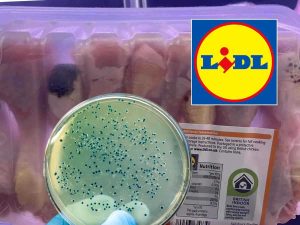Depression is a serious mood disorder that has often been referred to as the ‘black dog’, a metaphor coined by Winston Churchill. Depression just doesn’t pop up one day, but silently creeps its way into life under the radar. You may slowly find you’ve lost interest in things that you once enjoyed, feel low and inclined to withdraw from social activities. And so you visit the doctor. It’s a great step in the right direction!
Research conducted by the NHS shows that 86 million antidepressants were prescribed to 8.6 million patients between 2022-2023. That’s a huge number! And you may be wondering if there is a drug-free way to manage depression without antidepressants that is equally (if not more) effective. Are there alternative treatment options with fewer side effects? Let’s find out.
Depression: What causes it and how to detect it?
But first, let’s talk about what causes depression. Frustratingly, depression has no single specific cause and can be triggered by a complex variety of stressors. You may be surprised to learn that the World Health Organisation suggests that 5% of adults in the world suffer from depression, though this is likely to be a conservative figure. The most common reasons that people cite as the reason for feeling depressed include the loss of a loved one, relationship troubles or break ups, abuse, and childhood trauma.
However, if you think that only major life events can cause depression, then you’d be mistaken. Genetics can also play a role in increasing risk of depression. For example, if you have a close relative with a history of depression, your risk of experiencing a mental health issue increases. This does not, however, dictate that you will definitely suffer with it.
So, is it safe to assume that if you didn’t experience a major depressive life event and your family tree is also free from any sort of mental health issues, are you out of the woods?
Sadly, no. If you have a chronic illness such as fibromyalgia, rheumatoid arthritis or any health condition which results in physical pain over a long period of time, this increases the risk of depression. There is a close relationship between depression and chronic pain. Depression and pain are influenced by the same biological neurotransmitters – serotonin and norepinephrine, dysregulation of which can result in depression and pain or both.
But how do you recognise if you have depression?
Thankfully, there are some easy tell-tale signs to identify depression:
- Losing interest in things you once enjoyed
- Feeling irritable
- Feeling fatigued without obvious reason
- Feeling anxious about completing simple tasks
- Changes in appetite
- Changes in sleep patterns
- Low sex drive
- Struggle to maintain focus and attention
- Withdrawing from social situations
While these are some of the most common symptoms observed in depression patients, there are many more, and symptoms of depression can differ vastly between individuals. Presence of any of these symptoms doesn’t guarantee depression and it is highly recommended that you seek a diagnosis from a healthcare professional for an accurate diagnosis and effective treatment.
How to manage depression without antidepressants
If you or your loved one has been diagnosed with depression, chances are that you have thought about antidepressants as a potential treatment option. And while antidepressants do alleviate the symptoms of depression in some individuals, they do come with many side effects. Thankfully, they are not the only treatment option available for depression. Depending on the severity of your case, your doctor may suggest you the following:
Lifestyle changes
Sometimes, all it takes is a little fine tuning to improve your mood. A balanced diet with good mood foods (think fruit, vegetables, nuts, and fish), coupled with an active lifestyle can do wonders for your health.
A simple five minute walk in nature can liven up your mood, improve vitamin D levels in the body and refresh your mind from life’s daily stresses. In addition to this, studies show that three-quarters of depressed patients also experience insomnia. Sleep has a profound impact on mood so a focus should be placed on improving sleep quality.
Additionally, spending time with your loved ones, and doing things that interest you (even if you don’t necessarily feel like it) can help to improve your mental health.
Cognitive Behaviour Therapy (CBT)
They say that talking about your problems with the right people can be cathartic and help you work through them. This Cognitive Behavioural Therapy (CBT) comes in. Some people find CBT an effective tool for managing depression. CBT is a talking therapy which helps give patients new ways of thinking about their issues. A study by Ellen Driessen et al. has shown that CBT is also highly effective in treating severe depression. The study also found that patients who are married or show low levels of dysfunctional attitudes respond to CBT much better.
Repetitive Transcranial Magnetic Stimulation (rTMS)
A drug-free and non-invasive way to manage depression without antidepressants, rTMS is a highly effective treatment option for Treatment-Resistant Depression (TRD). This is depression that does not respond well to other treatments. rTMS uses pulses of electromagnetic waves from a magnetic coil placed near your scalp, to regulate the frequency of signals sent to the brain and positively impact mood. Specialised clinics in London can provide remission from depression symptoms in just 4 weeks which can change the lives of patients and their loved ones.
Depression can be treated
Living with depression is not only taxing for the individual, but their families suffer, too. While antidepressants are effective, their side effects – weight gain, libido issues, insomnia and more – unfortunately sometimes outweigh their benefits.
If you or your loved ones are exhibiting symptoms of depression, consulting a psychiatrist should be a top priority. They will be able to assess the severity of your symptoms, look at your medical history, and provide an accurate diagnosis (symptoms of depression can often be confused with symptoms of other conditions). A treatment plan will be tailored to you to give you the best chance of recovery and to get you on the right path for moving forward.




